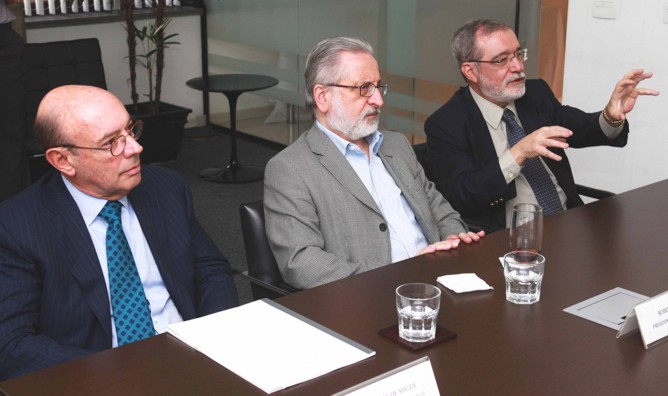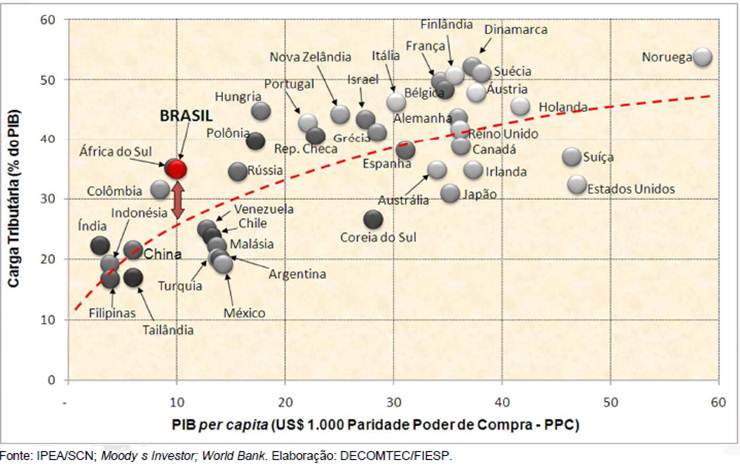Source: Last Instance - São Paulo / SP - 15/12/2010
Any tax interferes with the market. The tax burden impacts costs and can significantly change economic results. For this reason, the tax burden of agents competing in the market should, in principle, be uniform. If some are more costly than others, there will be artificial competitive advantage, since it does not result from greater efficiency. The precept of isonomy will then be wounded and, at the same time, the principle of free competition, damaging the exercise of free initiative, which is the foundation of the economic order.
It is the responsibility of the Public Power to take the necessary measures so that the tax is neutral in relation to the functioning of the market. This is what is called the “tax neutrality principle” which has two aspects: the negative and the positive. The negative aspect prevents the tax rule from being formulated in a way that privileges competitors (inequality in the law). The positive imposes the adoption of corrective measures aimed at making the tax burden legally established (inequality in the application of the law) effective.
Article 146-A of the Federal Constitution is a rule designed to legitimize the production of tax rules aimed at achieving the positive aspect of tax neutrality. He says that “a complementary law may establish special criteria for taxation, with the objective of preventing imbalances in competition, without prejudice to the Union's competence, by law, to establish norms with the same objective”.
This provision provides that a complementary law may establish parameters to be observed by the Union, States and Municipalities, for the creation of differentiated tax liability regimes in order to avoid or resolve competitive imbalances caused by the actions of individuals who use the tax to obtain competitive advantages. spurious. Competitive problems arising from non-tax causes or from government acts are outside the scope of the standard.
The special criteria are designed to make the correct payment of the tax feasible, when the general regime proves to be insufficient. Through them, some taxpayers are taxed differently from the others, however, with the objective of leveling the tax burden (tax function) that would otherwise be unequal, thus preventing possible competitive imbalance (extra-fiscal function). For example: if the normal IPI taxation regime, due to the value of the goods, presents application failures that compromise the regular functioning of the market, a special system of collection by fixed rates, which take into account, in its graduation, may be adopted. , the prices normally charged. In this sense, there is no breach of isonomy, but strict observance of the precept contained therein.
It must be made clear, however, that being instruments for the realization of tax justice, the special taxation criteria cannot be used in order to increase the tax burden.
Special taxation criteria can interfere with the elements of the main obligation (material criteria), or establish new ancillary obligations (formal criteria). The material criteria include: single-phase taxation, anticipation of the taxable event, fixed or specific rates, guidelines for minimum amounts. There are types of formal criteria: special inspection regimes, weight, volume or flow meters, proof of fiscal regularity, conditioning of non-cumulative tax credits to the payment of the tax in the previous transaction, special payment regime.
The elaboration of a complementary law that regulates article 146-A of the Federal Constitution is of extraordinary importance for the preservation of a healthy business environment in our country. The complementary law will establish general rules defining, essentially, the special taxation criteria that can be adopted, the competitive imbalances that justify them and the conditions and limits to be observed in your institution. As a result, tax administrations will have uniform parameters to produce norms that tend to neutralize competitive advantages based on tax violations. Taxpayers, in turn, will be protected by the limitations to be established in order to avoid possible abuses, even if under the pretext of defending free competition.
Launch
Today, 15/12, starting at 19:30 pm, ETCO launches, at MAM, the book “Tribute to the Market, Competitive Imbalance and the Constitution, Um Debate”, a work that reports the points discussed in the Seminar “Competitive Tax Imbalance and the Constitution Brasileira ”conducted by ETCO in May to discuss Article 146-A of the Constitution.
Oscar Pilagallo translates into journalistic language all the richness of the debate held at the Seminar, which was attended by:
* André Franco Montoro Filho, chief executive of ETCO;
* Everardo Maciel, former secretary of Receita Federal and ETCO advisor;
* Hamilton Dias de Souza, specialist in Tax Law;
* Humberto Ávila, specialist in Tax Law;
* Luís Eduardo Schoueri, professor of Tax Law at the Faculty of Law of the University of São Paulo;
* Luiz Fux, Minister of the Superior Court of Justice (STJ);
* Marcílio Marques Moreira, former Minister of Finance and president of the ETCO Consultative Council;
* Mariana Tavares de Araújo, Secretary of Economic Law;
* Otacílio Cartaxo, secretary of Federal Revenue;
* Rafael Favetti, executive secretary of the Ministry of Justice;
* Tércio Sampaio Ferraz Júnior, professor at the Faculty of Law of the University of São Paulo.
Service
Launch of the book “Tribute to the Market, Competition Imbalance and the Constitution, Um Debate”
Author: Oscar Pilagallo
Date: 15/12/10, Wednesday
Place: São Paulo Museum of Modern Art (MAM)
Address: Ibirapuera Park, gate 3, no number, São Paulo, SP










